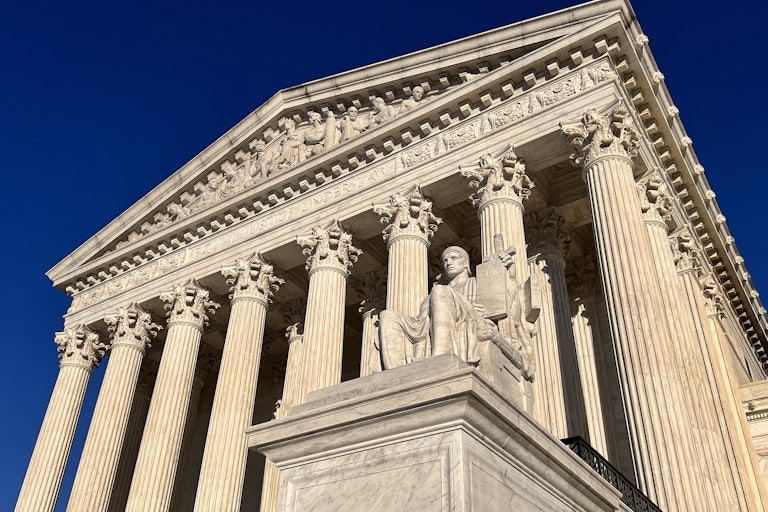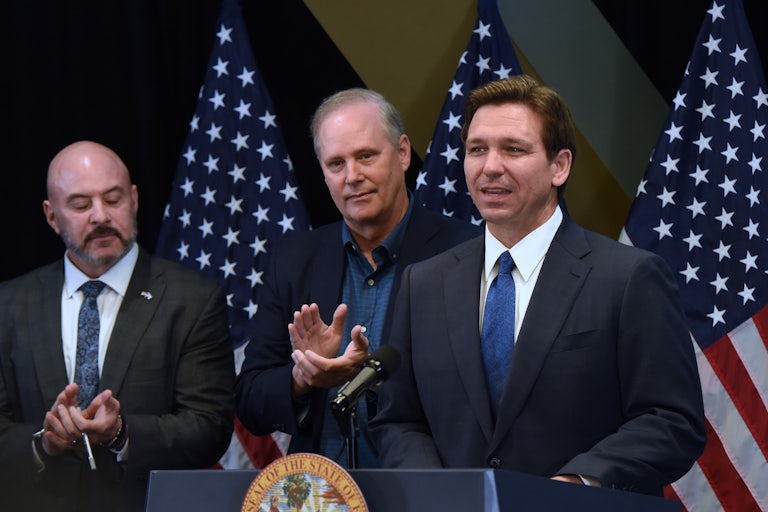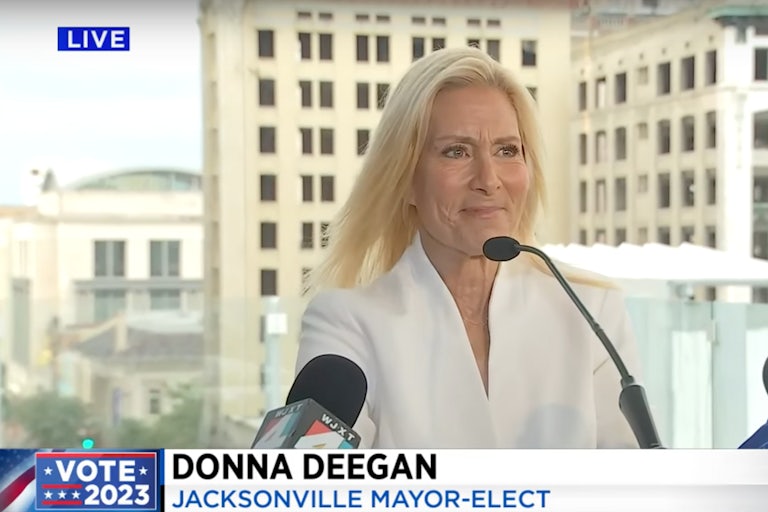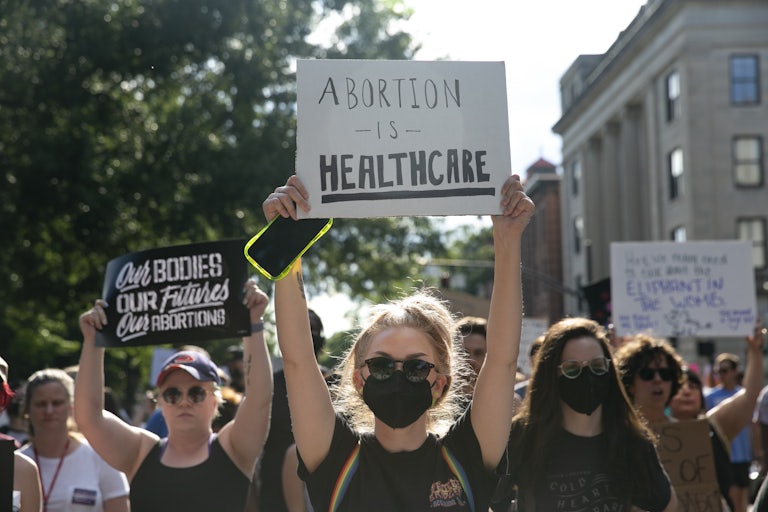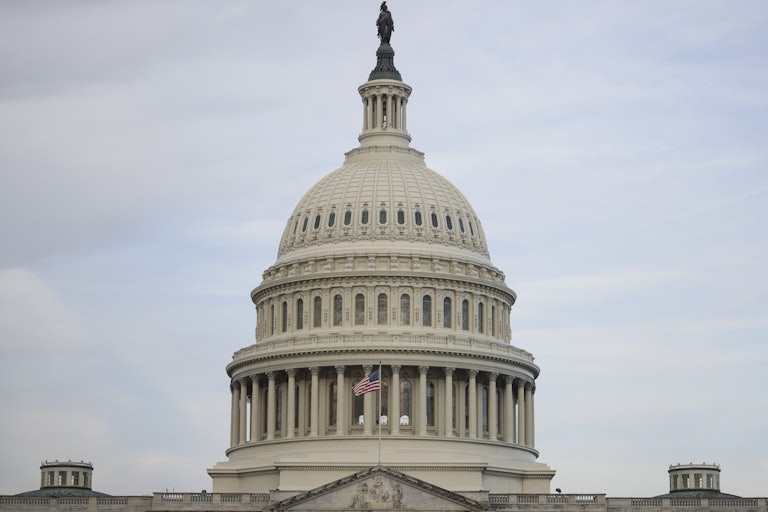Republicans Literally Laugh Off Idea of Taxing the Rich to Fix Budget
As the debt ceiling crisis continues, we get ever closer to the threat of a national default. And Republicans seem determined to take us there.
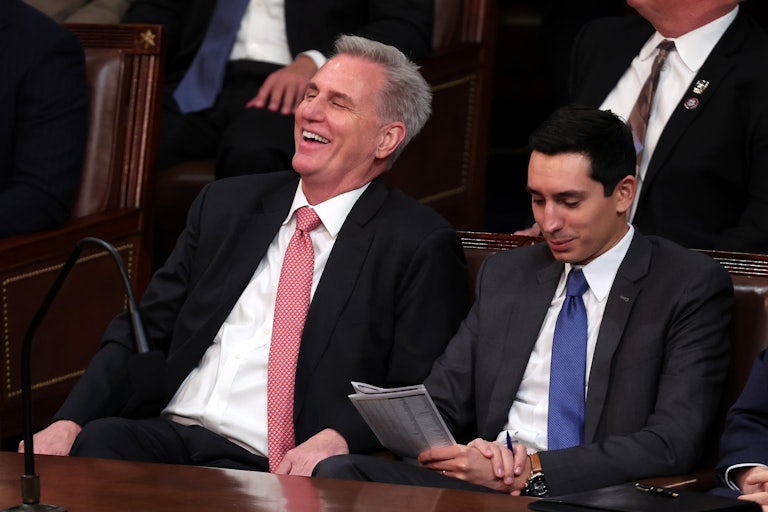
Republicans have said they want to reduce government spending and increase U.S. revenue—but not if it inconveniences rich people, apparently.
When a reporter asked House Speaker Kevin McCarthy if he would consider raising taxes on wealthy Americans, he answered with a short “No” before the question was even finished. Republicans standing around him groaned and shook their heads. They then began laughing when McCarthy asked where the reporter was earlier.
Republicans groan when a reporter asks McCarthy if he's open to considering a tax increase on the wealthy pic.twitter.com/sPzqzYbCTQ
— Aaron Rupar (@atrupar) May 17, 2023
McCarthy explained that wealth taxes weren’t necessary because the United States has a revenue of 20 percent of gross domestic product, as opposed to 17 percent in previous years. Instead, inflation was due to the Democrats spending $6 trillion after winning the presidential election in 2020.
McCarthy’s statement about revenue is technically true: The U.S. revenues in 2022 totaled 19.6 percent of GDP, according to the Congressional Budget Office, compared to the annual average of 17.4 percent in the five decades prior. Most of that revenue comes from income taxes.
But raising taxes on the wealthy, even by a little bit, would produce huge amounts of revenue. In 2021, Senators Elizabeth Warren and Bernie Sanders proposed charging billionaires a 3 percent wealth tax, and households and trusts worth between $50 million and $1 billion a tax of just 2 percent per year.
This would only apply to a tiny fraction of Americans, but it could produce about $3 trillion in revenue over the next decade, University of Berkeley economists predicted.
In his budget, President Joe Biden proposed increasing taxes on wealthy Americans and corporations and using the revenue to expand health care, childcare assistance, and housing aid. Not only have Republicans fought this plan, but their own budget proposes punishing lower-income Americans to benefit the wealthy.
Republicans’ solution to the debt ceiling crisis is focused on mere pennies in comparison to what a wealth tax would do. The bill calls for work requirements for Medicaid, food stamps, and cash assistance programs—which would barely make a dent in U.S. debt. Work requirements would save the government only about $1 billion per year, according to the CBO, nowhere near how much actually needs to be recouped. And that’s assuming, of course, that such requirements actually work.
The U.S. is just weeks away from defaulting on its debt, but Republicans and Democrats remain at a logjam over how to solve the problem. The GOP seems ready to take it out on the backs of people who can least afford it.
